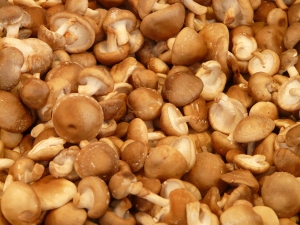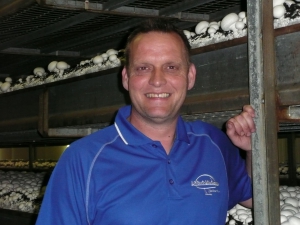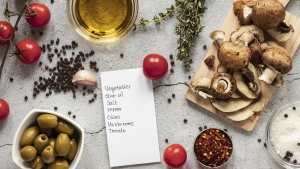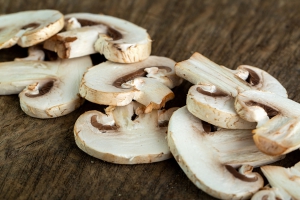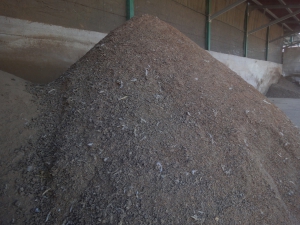
Mushroom Matter
Welcome on our platform. Why MUSHROOM MATTER? Because mushrooms play an important role in our lives as well in business. Our goal is to bring the world the very latest mushroom news with the upmost care to support the positioning of our beloved Mushroom.
Scientists to help Sikkim farmers grow ‘Rs 3,000/kg’ mushroom variety with enhanced Vitamin D
CSIR scientists say three food-processing cluster centres will be set up in Sikkim, each cluster likely to empower 250 households by providing them additional income.`
New Delhi: Scientists at the Council of Scientific and Industrial Research (CSIR) have started a project that will allow farmers in Sikkim to earn additional income by cultivating Vitamin D-enriched shiitake, a mushroom native to East Asia.
The fragrant, large umbrella mushroom is mostly used in Japanese cuisine, but is becoming increasingly popular in India. The mushrooms are expensive because they grow in very specific conditions on logs of fallen trees. Although shiitake is cultivated in north-east India at present, researchers at CSIR-IHBT have created a new technology that allows these mushrooms to grow in controlled lab conditions much faster.
According to Rakshak Kumar Acharya, a microbiologist at IHBT, Palampur, the technology had been earlier transferred to a number of private companies in India.
“In Delhi markets, it is sold at 3,000 per kg. Rates are very high compared to other mushrooms. This is because it has a very good smoky and meaty flavour,” he told ThePrint.
Three food-processing cluster centres are being set up in Sikkim in collaboration with the Ministry of Micro, Small and Medium Enterprises. Apart from facilities to grow the mushrooms, the centre will also have processing and packaging facilities. The government has allocated Rs 2.34 crore for each of the three cluster centres, and the foundation stone for the first centre was laid down on 29 January.
Enhancing Vitamin D content
The team at CSIR-IHBT has also created a process to enhance the Vitamin D content in these mushrooms in the lab.
According to the researchers, each cluster is likely to empower 250 households by providing additional income.
Credits and source of this article: The Print
For the complete article, click here
One of the most seen disease in mushroom farms is the dry bubble, caused by the fungus Verticillium fungicola. Its easy to get an infection in the farm and because the disease is very infectious it can spread quickly through the whole farm. Especially in big farms, where many pickers are working, the dry bubble will spread very fast and can cause a lot of damage and be that bad that 3rd breaks may be lost. Pickers should be getting all the information about the dry bubbles so they can detect the infection in an early stage.
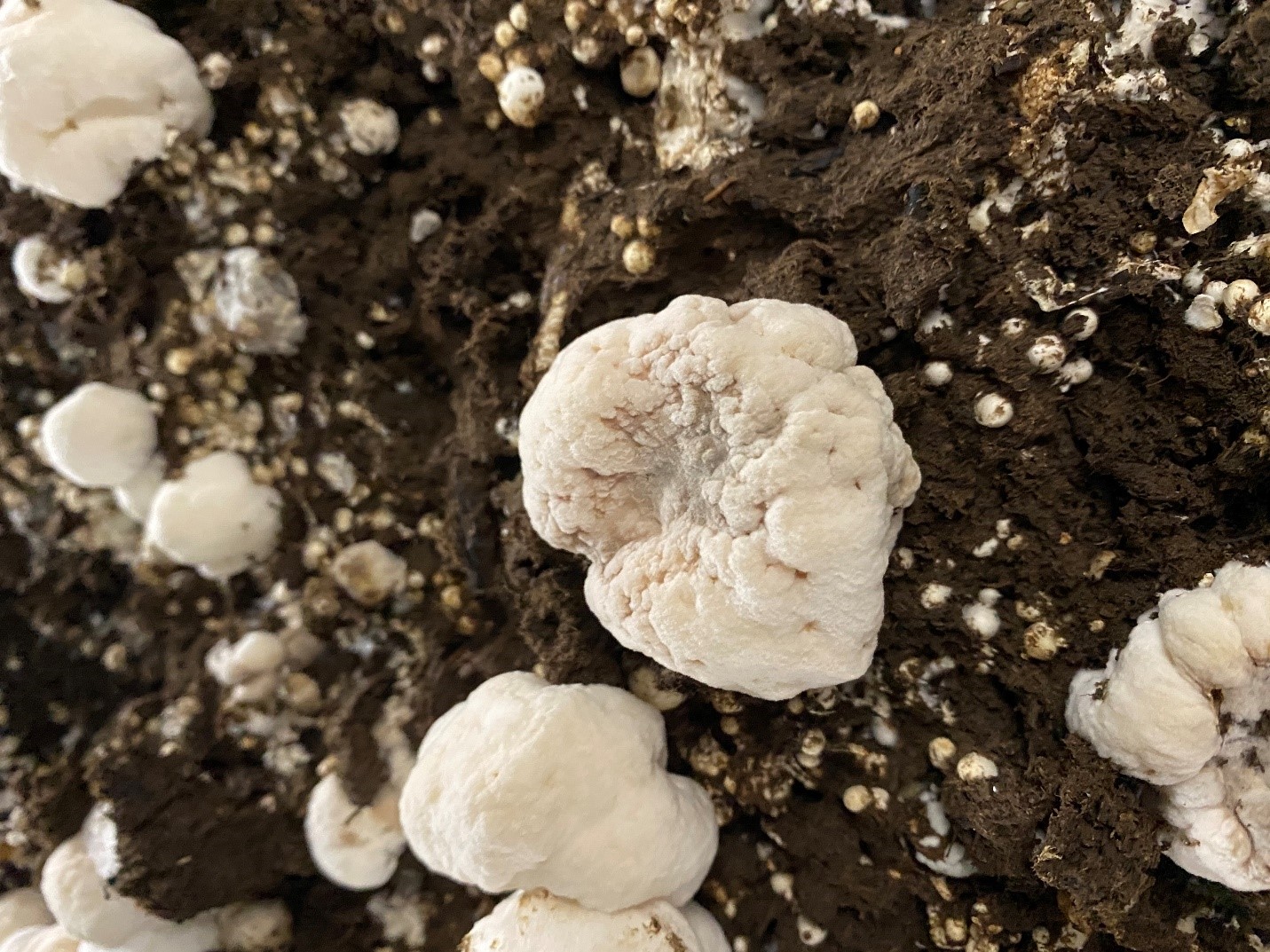
A dry bubble in a 2nd break.
Dry bubble is generally caused by spores around the farms in windy, dusty conditions. On filling days when its windy outside with dust in the air its very well possible to get the dry bubbles into the farm. When they are spotted before he 1st break, the infection came in at filling. Once inside it’s a matter of time before the spores are everywhere if not handled well. Hygiene on the farm should be checked and especially have a good look at all the materials that are used for your mushroom waste like stem bins. Spores of bubbles will be present there if not cleaned well and can be spread if materials are getting moved between rooms. Also pickers are a concern for spreading the infection. Spores are sticky so everything that gets touched after touching a bubble can get infected, be aware!!!, it can go rapidly.
Removing the bubbles is off course also very important. When the pickers don’t recognize a bubble and are picking mushrooms while touching dry bubbles it will be always be hard to control the infection rate. Educate them well and spread around as much information as you have to inform pickers about the diastase and the big risk it has on the results of the farm. Let them, or the picking lead, report the infection so a special crew can handle it the right way.
When the pickers recognize the bubbles, the next step is removing the infection as soon as possible. Makes sure when you remove the bubble you don’t spread the spores what will results in more bubbles within 4 to 5 days. Use a wet tissue to cover infected spots too avoid the spread and remove all the spot including the casing soil, using a plastic bag. Close the bag immediately after you have the bubble and surrounded casing soil inside and remove the bag from the farm as soon as possible. You can also leave it in the affected room and remove it after cook-out. After removing it use salt or ammonia to cover the infected area and inspect the area every day to see if the infection is spreading.
It all comes down to a good hygiene, organization and education. Infection can occur suddenly but if threated the right way can also be stopped rapidly. Organize it well so that infections get removed before rooms get picked or watered, those are moments when spores will spread. If everybody recognizes the disease and knows what to do and handles right, bigger problems can be avoided. Hygiene is key, not only for dry bubbles, and should never be underestimated.
Erik de Groot
This email address is being protected from spambots. You need JavaScript enabled to view it.
Soon we will also be able to build houses with the influence of mushrooms.
Researchers have made a brick from mushrooms. The building material we know today is not good for the environment due to the emission of carbon dioxide. This 'mushroom brick' in below video of Verge Sience is carbon neutral and you can see how this stone was created.
From the production of healthy food to attention to animal and plant health, from managing a beautiful and diverse landscape to contributing to a healthy economy: Limburg's farmers and horticulturists literally keep the province healthy. Today a conversation with entrepreneur Gerard Sikes from Ysselsteyn, who is well on his way to climate-neutral mushroom production.
Sikes (49) grew up on an arable farm, his wife Karin (49) on a mushroom farm. In 1988 they started cultivating mushrooms together.
'A nursery was for sale, but we could also have bought a sandwich shop or opened a bicycle shop,' says Sikes. 'What matters to us is doing business together.'
Every morning, around eight o'clock, the couple sits together at the table to discuss all current matters and the day ahead. 'A healthy relationship is the basis for our company. My wife gives feedback, is my complaint and teacher.'
Source: Nieuw Oogst (article is in Dutch)
The glacier protection fleece under the brand name of TenCate Toptex® GLS makes it into the Environment section of “Pictures of the year” 2020.
A picture of the spectacular installation of the glacier protection fleece TenCate Toptex® GLS from TenCate Geosynthetics on the Presena glacier in Italy was chosen to be included in Reuters´ renowned “Pictures of the year” 2020.
The most recent installation of the glacier protection fleece under the brand name of TenCate Toptex® GLS from TenCate Geosynthetics, covering over 100,000 square meters of the Presena glacier in Northern Italy, was documented by a photographer from the news agency Reuters. At the end of 2020, one picture of the series was selected to be included in the Environment section of Reuters´ „Pictures of the year 2020“.
Please read the full Press Release here.
Reviewed by Emily Henderson, B.Sc.
Researchers have identified another good reason to eat more mushrooms. New research , published in Food Science & Nutrition (January 2021) found that adding a mushroom serving to the diet increased the intake of several micronutrients, including shortfall nutrients such as vitamin D, without any increase in calories, sodium or fat.
Dr. Victor L. Fulgoni III and Dr. Sanjiv Agarwal modeled the addition of mushrooms to National Health and Nutrition Examination Survey (NHANES) 20112016 dietary data looking at a composite of white, crimini and portabella mushrooms at a 1:1:1 ratio; one scenario including UVlight exposed mushrooms; and one scenario including oyster mushrooms for both 918 years and 19+ years of age based on an 84g or ½ cup equivalent serving.
Key findings include:
- Adding an 84g serving of mushrooms increased several shortfall nutrients including potassium and fiber. This was true for the white, crimini and portabella 1:1:1 mix and the oyster mushrooms.
- The addition of a serving (84 g) of mushrooms to the diet resulted in an increase in dietary fiber (5%6%), copper (24%32%), phosphorus (6%), potassium (12%14%), selenium (13%14%), zinc (5%6%),
riboflavin (13%15%), niacin (13%14%), and choline (5%6%) in both adolescents and adults; but had no impact on calories, carbohydrate, fat or sodium. - When commonly consumed mushrooms are exposed to UVlight to provide 5 mcg vitamin D per serving, vitamin D intake could meet and slightly exceed the recommended daily value (98% 104%) for both the 9 18 year and 19+ year groups as well as decrease inadequacy of this shortfall nutrient in the population.
- A serving of UVlight exposed commonly consumed mushrooms decreased population inadequacy for vitamin D from 95.3% to 52.8% for age group 918 years and from 94.9% to 63.6% for age group 19+ years.
"This research validated what we already knew that adding mushrooms to your plate is an effective way to reach the dietary goals identified by the DGA. Data from surveys such as NHANES are used to assess nutritional status and its association with health promotion and disease prevention and assist with formulation of national standards and public health policy (CDC, 2020)."
Mary Jo Feeney, MS, RD, FADA, Nutrition Research Coordinator,
Mushroom Council
Mushrooms are fungi a member of the third food kingdom biologically distinct from plant and animalderived foods that comprise the USDA food patterns yet have a unique nutrient profile that provides nutrients common to both plant and animal foods.
Although classified into food grouping systems by their use as a vegetable, mushrooms' increasing use in main entrees in plantforward diets is growing, supporting consumers' efforts to follow foodbased dietary guidance recommendations to lower intake of calories, saturated fatty acids, and sodium while increasing intake of underconsumed nutrients including fiber, potassium and vitamin D. Often grouped with vegetables, mushrooms provide many of the nutrient attributes of produce, as well as attributes more commonly found in meat, beans or grains.
According to the USDA's FoodData Central, 5 medium raw, white mushrooms (90g) contain 20 calories, 0g fat, 3g protein and are very low in sodium (0mg/<1% recommended daily value). Few foods naturally contain vitamin D, and mushrooms are unique in that they are the only food in the produce aisle that contain vitamin D. Specifically, one serving of raw, UVexposed, white (90g) and crimini (80g) mushrooms contains 23.6mcg (118% RDA) and 25.52mcg (128% RDA) of vitamin D, respectively.
Mushrooms are one of the best dietary sources of sulfurcontaining antioxidant amino acid ergothioneine and tripeptide glutathione Ergothioneine and glutathione contents in mushrooms depends upon the mushroom varieties, and oyster mushrooms contain more amounts of these sulfur containing antioxidants than commonly consumed mushrooms: white button, crimini, or portabella mushrooms. The addition of a serving of commonly consumed mushrooms and oyster mushrooms would be expected to add 2.24 and 24.0 mg ergothioneine, respectively, and 3.53 and 12.3 mg glutathione, respectively, to the NHANES 20112016 diets based on published literature values.
At this time, the USDA FoodData Central database does not include analytical data on ergothioneine. However, the Mushroom Council is currently supporting research to analyze mushrooms for bioactives/ergothioneine for possible inclusion in USDA FoodData Central database.
More research from the mushroom council still to come
With mushrooms growing in awareness and consideration among consumers nationwide, in 2019, the Mushroom Council made a $1.5 million multiyear investment in research to help broaden understanding of the food's nutritional qualities and overall health benefits.
In addition to the analysis of mushrooms for bioactives/ergothioneine for inclusion in USDA FoodData Central database, additional research projects approved include:
- Health promoting effects of including mushrooms as part of a healthy eating pattern.
- Mushrooms' relationship with cognitive health in older adults. Mushrooms' impact on brain health in an animal model.
- Nutritional impact of adding a serving of mushrooms to USDA Food Patterns.
Since 2002, the Council has conducted research that supports greater mushroom demand by discovering nutrient and health benefits of mushrooms. Published results from these projects form the basis for communicating these benefits to consumers and health influencers.
Source: FLM Harvest Journal
In May 2020, the Shiitake Biltong team from Maastricht took part in the student competition Ecotrophelia. They have continued to develop new food products. Soon they hope to start their own company that will enter the market with potato chips based on mushrooms.
For Ecotrophelia, the group of Maastricht students presented a vegetarian variant of the biltong which is popular in South Africa; a snack consisting of dried strips of meat that resembles beef jerky. The students won the Dutch final with it and were also allowed to present the idea during the European final.
After the team took another critical look at the idea, the students came to the conclusion that shiitake as a raw material was not such a smart choice. Good shiitake is hard to get and must be imported from Asia. That is expensive and not really sustainable.
The team went back to work and now opted for raw materials from a Dutch residual flow. They developed mushrooms based on pieces of sliced mushrooms. The idea has been elaborated in a business plan, contacts have been made with suppliers, buyers and a possible producer. At this time the production process is optimized and the students are about to start their own company.
Source: Foodholland (article is in Dutch)
Chicken manure
Chicken manure is an important raw material in mushroom compost and for the composter as it is the biggest source of nitrogen. It is therefore vital to keep the quality as consistent and as high as possible. However, the quality of chicken manure is unimportant for the farmer, for him it is a waste product. So make sure you always pay attention to the following points yourself.
Quality
Achieve the best quality with: - a nitrogen content (N) of 3.5 to 4%. The higher, the better; - a moisture content between 20 and 50%. The majority of composters work with dry chicken manure. The most suitable type is manure from broilers. This contains a higher percentage of actual manure compared to the rest of the constituents such as sawdust.
Regular supplier
One of the main aims of composting is to create homogenous compost: ensuring that you always supply growers with the same quality of spawnable or incubated compost. This process starts with selecting your suppliers, including the ones who provide you with chicken manure. Always work with the same chicken farmer, who keeps his birds in the same way. If you do not have a regular supplier, then you will have to compensate for the differences in the chicken manure.
Analysis is essential
Even if you do use a regular supplier, analysing the nitrogen and moisture content in the manure remains essential, even though the results of the analysis are usually the same readings. If the birds are sent to slaughter earlier or later than usual, there will be a direct influence on the nitrogen content. You won't see it visibly in the manure, but it will appear in the analysis. Using the wrong recipe to blend the compost has immediate and far-reaching consequences for your mushroom production. You won't be the first person to have two weeks of bad production….
Distribute well
Distributing the chicken manure over straw can only be done well once. The blending done afterwards will not compensate for any bad initial mixing. Every single blade of straw must come into contact with the manure. You must avoid any large lumps of chicken manure ending up in the compost.














